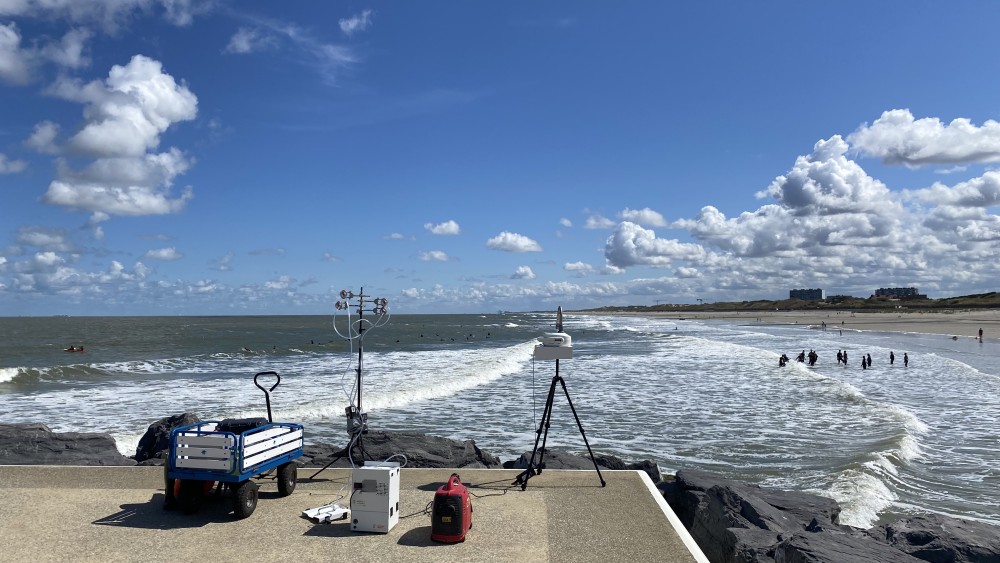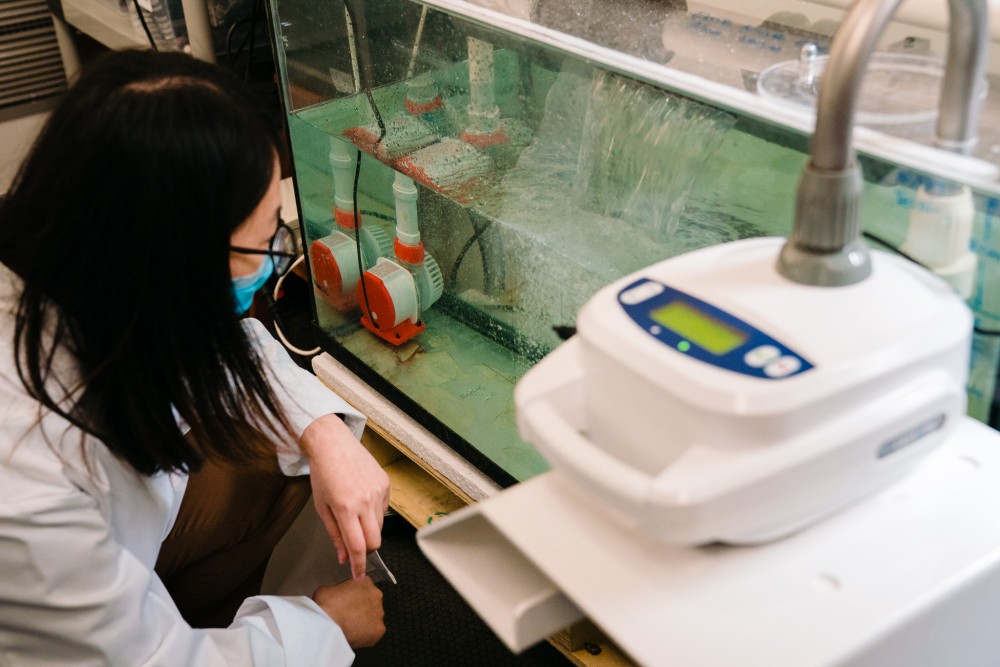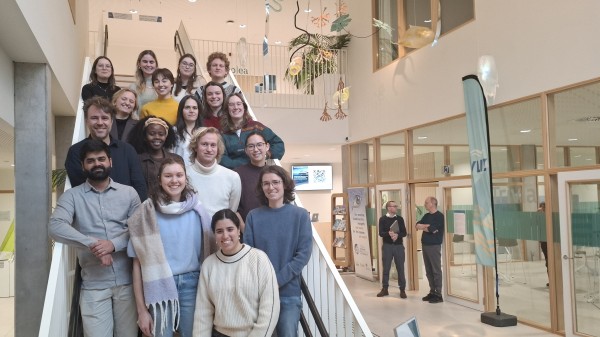Many people experience a sense of relaxation and well-being when spending time by the sea. Scientific studies have shown that living near the ocean is linked to better health, though the exact reasons for this are not yet fully understood. Recent research by Yunmeng Li (VLIZ, Ghent University, and the University of Antwerp) sheds new light on a surprising factor: the air we breathe at the coast contains microscopic aerosols that transport bacteria and other bioactive compounds from seawater into the atmosphere. In her PhD – defended on 13 February 2025 – she demonstrated that these airborne particles may have subtle effects on our immune system when inhaled.

The invisible world of sea spray aerosols
Sea air is more than just a refreshing breeze – it contains microscopic particles known as sea spray aerosols (SSAs). These tiny droplets are formed when waves break and bubbles burst, releasing seawater into the air. Along with salt ions, SSAs carry various microorganisms, including bacteria, viruses, fungi, and phytoplankton, as well as biogenic molecules such as lipids, carbohydrates, amino acids, and vitamins from the ocean. This means that while walking on the beach, we may be inhaling this complex mixture originating from the sea.
Many sea aerosols at high wind speeds blowing from the sea
Yunmeng Li and her colleagues studied airborne bacteria in air samples collected on the rooftop of Marine Station Ostend (approximately 600 m from the sea) during spring and summer. The composition of these airborne bacteria varied with wind direction and the seasonal dynamics of the temperature of seawater and air, and bacterial communities in the nearby coastal waters.
By comparing the bacterial communities in the air samples with the surf zone water, they found that when wind speeds exceeded 4 m/s and winds blew from the sea, leading to SSA dominance, a greater proportion of airborne bacteria resembled those found in local seawater.
Low-level SSAs dampens inflammatory response
To understand how inhaled marine bacteria affect immune responses, human cells were exposed to SSA samples for approximately 24 hours in the lab. The bacteria and endotoxins (a component of the outer membrance of Gram-negative bacteria) in these aerosols were found to mildly activate key immune receptors Toll-like receptor 4 (TLR4) and Toll-like receptor 2/6 (TLR2/6, as well as the transcription factors nuclear factor kappa B (NF-κB) and interferon regulatory factor (IRF).
The strength of this effect depended on the concentration of bacteria and endotoxins in the SSA samples. Interestingly, follow-up experiments showed that low concentrations of these marine bacteria and endotoxins dampened TLR4 and IRF activation in response to subsequent exposure to pro-inflammatory E. coli LPS.

Health implications and future research
These findings suggest that exposure to low levels of airborne marine bacteria and endotoxins in SSAs may help regulate immune responses, potentially contributing to the health benefits associated with coastal environments. However, many questions remain: How does short-term exposure compare to long-term coastal living? What role do aerosol particle size and associated microbial or chemical composition play? And how do other immune pathways respond?
Yunmeng Li’s research on airborne marine bacteria, combined with previous biochemical studies on the health effects of sea spray aerosols by Emmanuel Van Acker and Zixia Liu, serves as a foundation for future investigations. Follow-up research is currently conducted by Silke Lambert (UGent) and Maarten De Rijcke (VLIZ).
PhD defense
Yunmeng Li defended her PhD on February 13, 2025, at the InnovOcean Campus in Ostend. Her PhD was supervised by Prof. Dr. ir. Sarah Lebeer (University of Antwerp, Lab of Applied Microbiology and Biotechnology), Prof. Dr. ir. Jana Asselman (Ghent University, Blue Growth Research Lab), and Dr. Maarten De Rijcke (VLIZ, Life’s Roots & Rates Team).
Citation: Li, Y. (2025). Marine bacteria in sea spray aerosols and their potential immunological effects on human health. VLIZ PhD Theses, 8. PhD Thesis. University of Antwerp, Faculty of Science/Ghent University, Faculty of Bioscience Engineering/Flanders Marine Institute (VLIZ): Antwerp/Ostend/Ghent. ISBN 9789464206333. 265 pp. https://dx.doi.org/10.48470/100


